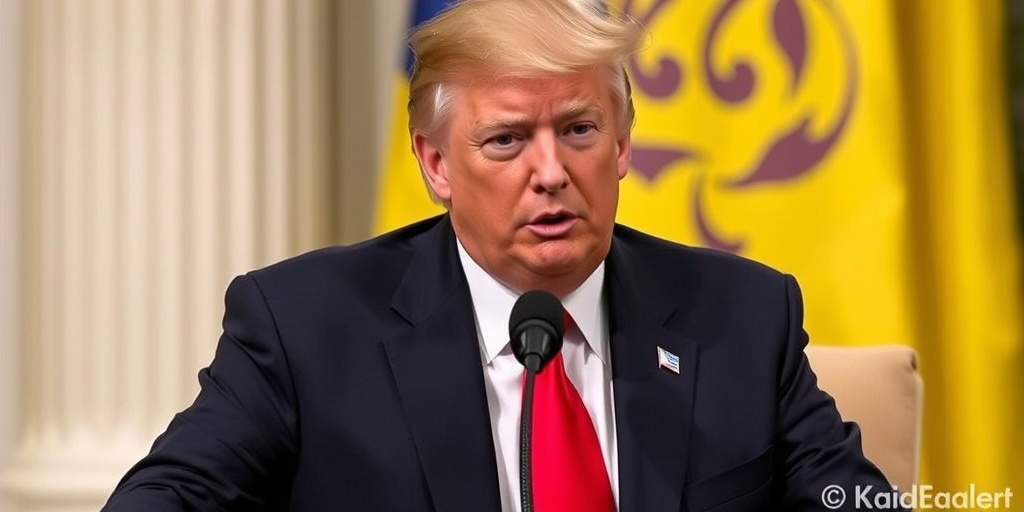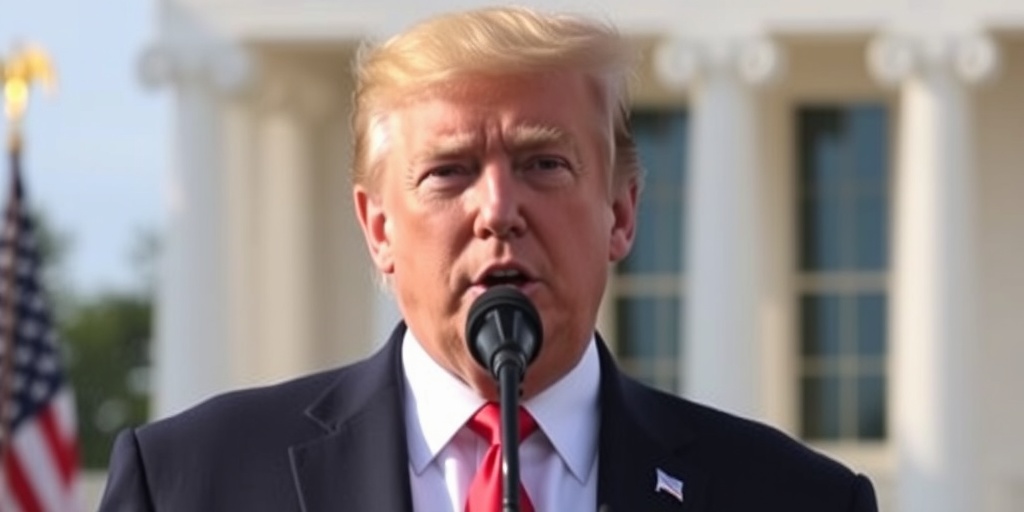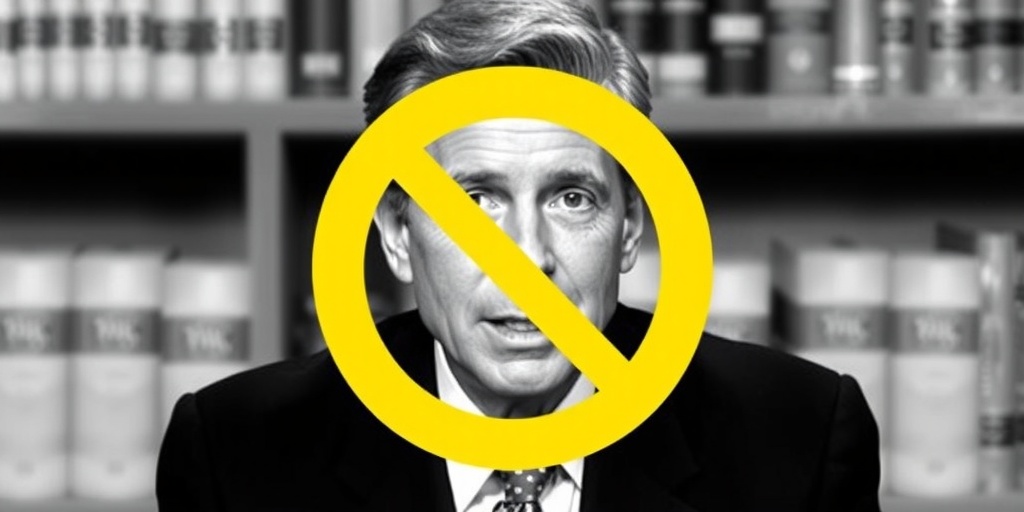Now Reading: Trump Escalates Statehood Threats in Canada Attack
-
01
Trump Escalates Statehood Threats in Canada Attack
Trump Escalates Statehood Threats in Canada Attack
Trump’s Vision for Canada: Annexation and Tariffs Amidst Tensions
In a striking development this week, President Donald Trump has intensified his rhetoric towards Canada, proposing increased tariffs on various imports while outlining an unexpected vision for the country to become the "51st state" of the United States. This bold statement marks a significant escalation in the ongoing tensions between the U.S. and its northern neighbor, a traditional ally within NATO.
Since his election in November, Trump has made reference to Canada potentially joining the U.S., with last month’s conversation with outgoing Prime Minister Justin Trudeau underscoring his dismissiveness towards the longstanding border treaty between the two nations. Reports from The New York Times highlighted these concerns, suggesting Trump does not see the current agreements as viable.
On Tuesday, amid the backdrop of escalating trade discussions, Trump announced plans to double tariffs on Canadian steel and aluminum imports. During this announcement, he articulated, perhaps more clearly than ever, his thoughts on why Canada should formally join the United States. "The only thing that makes sense is for Canada to become our cherished Fifty First State,” he stated, arguing that this transition would eliminate tariffs and enhance economic security for both nations. He further claimed this move would simplify tax structures and bolster military security for Canadians—a direct jab at the complexities associated with the current border situation.
Trump’s reasoning for these tariffs stems from his belief—unsupported by substantial evidence—that Canada is a significant contributor to the influx of undocumented migrants and fentanyl into the United States. In fact, data shows that in 2024, only about 23,000 people crossed the Northern border illegally, a stark contrast to the millions who crossed from the Southern border with Mexico. Moreover, estimates suggest that a mere one percent of the fentanyl found in the U.S. originated from Canada, indicating that the justification for tariffs may be more politically motivated than factually based.
In his address, Trump echoed sentiments expressed during his February phone call with Trudeau, stating that “the artificial line of separation drawn many years ago will finally disappear.” He even went so far as to ensure that “O Canada,” the national anthem of Canada, would continue to be played, albeit now as part of a "great and powerful state" within the United States. This comment has further fueled speculation and discussion about the feasibility and implications of such a drastic political shift.
While many observers interpret Trump’s comments about annexation as hyperbolic, intended more to extract concessions regarding trade and economic policies, Canadian political leaders and the public have approached the situation with real concern. Historical context suggests that while such rhetoric may seem humorous or absurd to some, Canadian leaders are taking Trump’s comments very seriously, entering discussions of national identity and sovereignty.
Amid this tumultuous backdrop, Trudeau’s government has faced significant pressure. In a recent effort to stave off potential economic repercussions from the U.S., Trudeau reached a temporary agreement with Trump that included a commitment to redouble efforts to manage migration at the border, which has resulted in a noticeable decrease in illegal crossings. He also appointed a special envoy to combat the fentanyl crisis and pledged new funding to enhance cooperation on tackling organized crime, which has been identified as a major contributor to the drug trade.
The turbulence in U.S.-Canada relations has had a profound impact on Canadian politics, leading to a resurgence of nationalism and unity among the public. Trudeau’s Liberal Party, which had suffered declining approval ratings, has seen a shift in fortunes, with Mark Carney, a former central banker, recently chosen to lead the party in anticipation of upcoming elections.
Both major political parties in Canada are recognizing Trump’s aggressive stances as a serious threat to national interests. The Conservative Party, traditionally more aligned with U.S. policies, is now joining its rivals in condemning Trump’s threats as a crisis, a testament to the potential ramifications of his administration’s trade policies on Canadian sovereignty and economy.
Public sentiment in Canada has also reflected this urgency. A movement promoting the purchase of domestic products—summed up in the slogan "Buy Canadian"—is gaining traction, signaling that many Canadians are rallying around their national identity in the face of perceived American aggression.
In response to the existential questions raised by current events, Trudeau articulated the gravity of the moment, stating, "This is a nation-defining moment. Democracy is not a given. Freedom, it’s not a given. Canada is not a given. None of those happen by accident. None of them will continue without effort.” His remarks encapsulate the resolve of Canadians to protect their sovereignty and identity in the face of external pressures.
With U.S.-Canada relations at a crossroads, the coming months will likely be pivotal in determining the future of their diplomatic and economic ties. As tensions rise, the implications of Trump’s proposed annexation will continue to reverberate across both nations.
Stay Informed With the Latest & Most Important News
Previous Post
Next Post
-
 01New technology breakthrough has everyone talking right now
01New technology breakthrough has everyone talking right now -
 02Unbelievable life hack everyone needs to try today
02Unbelievable life hack everyone needs to try today -
 03Fascinating discovery found buried deep beneath the ocean
03Fascinating discovery found buried deep beneath the ocean -
 04Man invents genius device that solves everyday problems
04Man invents genius device that solves everyday problems -
 05Shocking discovery that changes what we know forever
05Shocking discovery that changes what we know forever -
 06Internet goes wild over celebrity’s unexpected fashion choice
06Internet goes wild over celebrity’s unexpected fashion choice -
 07Rare animal sighting stuns scientists and wildlife lovers
07Rare animal sighting stuns scientists and wildlife lovers




















